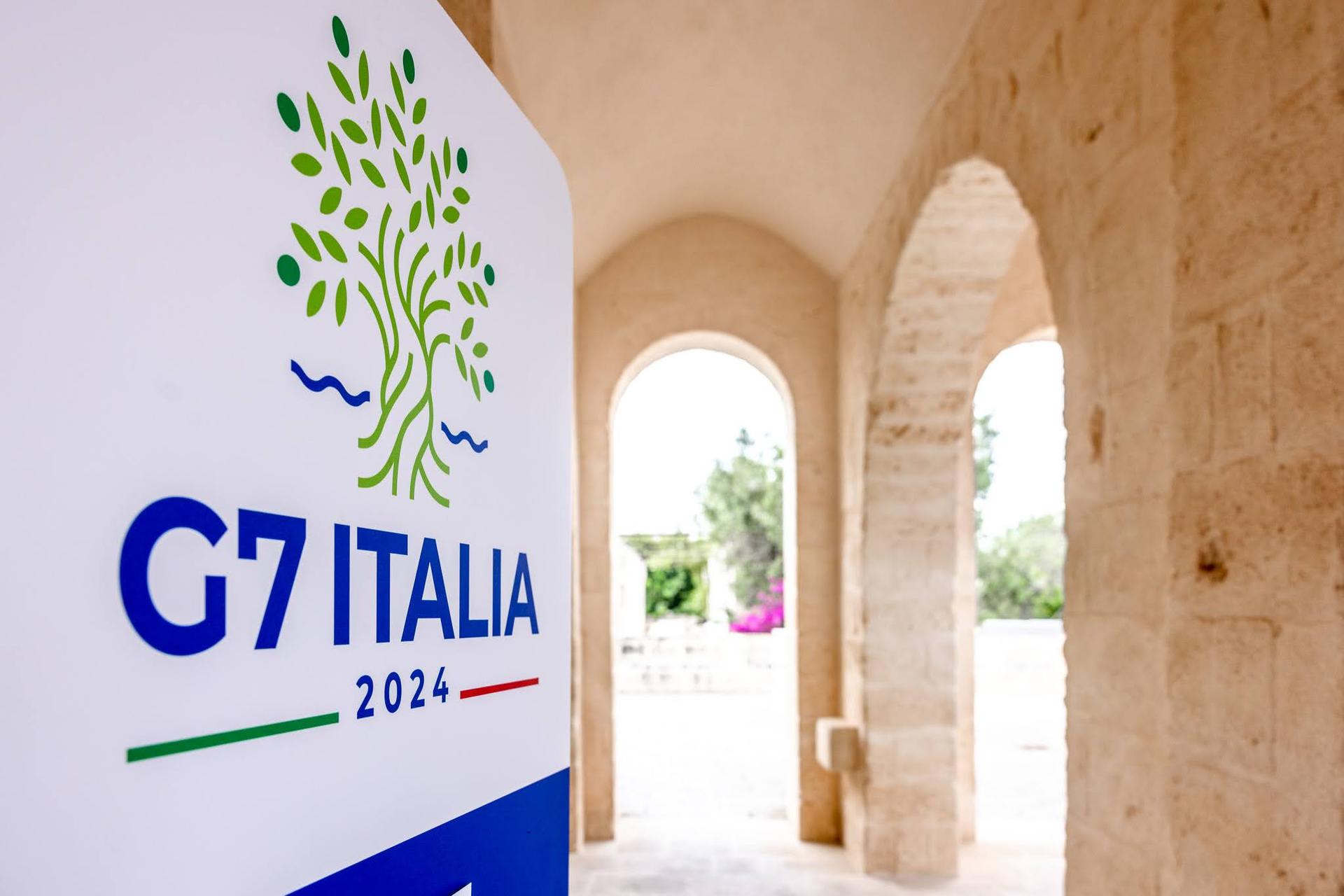Pope Francis gave an endorsement for Artificial Intelligence at the G7 summit in Italy, but warned that although machines can make choices only human beings are “in their hearts are capable of deciding.”
Italian Prime Minister Giorgia Meloni was leading discussions linked to the emerging technology during an hour-and-a-half-long session on Friday at Borgo Egnazia in Apulia.
The Pontifical Academy for Life organized a summit in 2020 along with major global technology firms such as Microsoft and IBM, which produced a document known as the “Rome Call for AI Ethics.”
More recently, Francis devoted his messages both for the 2024 World Day of Peace and also the World Day of Social Communications to the theme of artificial intelligence.
Speaking to the G7, the pope said artificial intelligence arises from the use of “God-given creative potential.”
“As we know, artificial intelligence is an extremely powerful tool, employed in many kinds of human activity: From medicine to the world of work; from culture to the field of communications; from education to politics,” Francis said.
“It is now safe to assume that its use will increasingly influence the way we live, our social relationships and even the way we conceive of our identity as human beings,” he added.
RELATED: Summit explores role of ethics in development of artificial intelligence
The pope did point out the question of artificial intelligence is often perceived as ambiguous.
“On the one hand, it generates excitement for the possibilities it offers, while on the other it gives rise to fear for the consequences it foreshadows. In this regard, we could say that all of us, albeit to varying degrees, experience two emotions: We are enthusiastic when we imagine the advances that can result from artificial intelligence but, at the same time, we are fearful when we acknowledge the dangers inherent in its use,” Francis said.
He said the advent of artificial intelligence represents a true cognitive-industrial revolution, which will contribute to the creation of a new social system characterized by “complex epochal transformations.”
For example, the pope said artificial intelligence could enable a democratization of access to knowledge, the exponential advancement of scientific research and the possibility of giving demanding and arduous work to machines; but at the same time, it could bring with it a greater injustice between advanced and developing nations or between dominant and oppressed social classes.
RELATED: Nigerian Church cautions against dangers of Artificial Intelligence
Francis said this raising the “dangerous possibility” that a “throwaway culture” be preferred to a “culture of encounter.”
“It is precisely this powerful technological progress that makes artificial intelligence at the same time an exciting and fearsome tool, and demands a reflection that is up to the challenge it presents,” he said.
The pope pointed out that essentially, artificial intelligence is a tool designed for problem solving, and makes a technical choice among several possibilities based either on well-defined criteria or on statistical inferences.
“Human beings, however, not only choose, but in their hearts are capable of deciding,” Francis said.
RELATED: Archbishop in Fiji warns against negative effects of artificial intelligence
“Precisely in this regard, allow me to insist: On light of the tragedy that is armed conflict, it is urgent to reconsider the development and use of devices like the so-called ‘lethal autonomous weapons’ and ultimately ban their use,” he said.
“This starts from an effective and concrete commitment to introduce ever greater and proper human control. No machine should ever choose to take the life of a human being,” he added.
Francis also said there is a concrete risk, inherent in its fundamental design, that artificial intelligence “might limit our worldview to realities expressible in numbers and enclosed in predetermined categories, thereby excluding the contribution of other forms of truth and imposing uniform anthropological, socio-economic and cultural models.”
“The technological paradigm embodied in artificial intelligence runs the risk, then, of becoming a far more dangerous paradigm, which I have already identified as the ‘technocratic paradigm.’ We cannot allow a tool as powerful and indispensable as artificial intelligence to reinforce such a paradigm, but rather, we must make artificial intelligence a bulwark against its expansion,” the pope said.
Francis is the first pontiff to speak at a G7 summit.
Follow Charles Collins on X: @CharlesinRome












